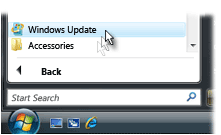Bob Gray’s company, Homestead Interior Doors, makes wood moldings and custom doors about two hours from our store. Recently, he was checking his online bank account and noticed a $50,000 withdrawal he could not remember making.
“I didn’t remember doing anything like that,” he says (according to an account in My Business). “Then, right before my eyes another $50,000 transfer popped up.”
Bob had software meant to prevent viruses and his computer had the protection of a firewall. It seemed like he did everything right. But, somehow, hackers had wormed their way in past these defenses, then used the information they stole to take control of his bank accounts.
He managed to get half the money back, but the theft nearly led to financial ruin. “There were times that I was convinced I was going to lose my business over this,” Gray said.
Stories like this scare me to death. I know butter churns and wood cookstoves, but I have to live in a confusing world of computers and electronic communication.
So, what can I do, and what can you do, to prevent this from happening? I did some research, and here’s what I found.
 Use tricky passwords – A classic approach is to switch letters and numbers. It’s important that the password is memorable, because you should never write down your passwords. A guide on how to design memorable, secure passwords is found here. An online password generator that does the work for you is found here. There’s a decent (and free!) utility available from PCMag that can help you with your passwords.
Use tricky passwords – A classic approach is to switch letters and numbers. It’s important that the password is memorable, because you should never write down your passwords. A guide on how to design memorable, secure passwords is found here. An online password generator that does the work for you is found here. There’s a decent (and free!) utility available from PCMag that can help you with your passwords.
Beware of links – A common trick of hackers is to supply a link that only appears to go to a legitimate location. This is often done in fake emails. A classic example is the bank email that warns that you may be a victim of identity theft and includes a link to “verify your password.” There are two dangers of clicking on a link (whether on a web, site, email, Facebook message or Tweet). First, it may lead to a bad site designed to steal your information. Second, clicking on the link may actually install and launch malicious software on your computer.
Be suspicious – Dad’s always told me, “If it sounds too good to be true, it probably is.” By now most everyone knows that the infamous “Nigerian President’s son” emails are fakes. This just means the offers will get more subtle and more misleading. But, it’s not just free money offers. Free software, free music and movie downloads and sites offering foreclosed homes for $500 are all suspicious. For a full list of potential scams, check the Federal Trade Commission’s website.

Keep your software safe – Software updates are provided by Microsoft, Firefox and all other legitimate software providers to make sure your software is safe. There’s even reliable, safe anti-virus software is available from AVG Technologies. Downloading and installing periodic updates are no different than getting periodic oil changes for your car. Staying current means avoiding damage.
Check the URL Scammers can fake how a website looks and make you think you are on a legitimate website when you aren’t. But (so far as I know), they can’t fake the website address information at the top of your screen.

If the address of the website you are visiting isn’t right, the website’s not right no matter how good it looks. (For the story of an experienced web user who fell for this scam, click here.)
In the end, I guess that the internet world is a lot like our real lives. You most likely look both ways before you cross the street. That’s no different from thinking carefully before you click any link. You know what a bad neighborhood looks like and most likely avoid going there. That’s no different from avoiding websites that look unprofessional or make offers that seem illegitimate or suspicious. You lock your doors at night and when you’re away. That’s no different than keeping your software up to date.
![]()
Galen Lehman, President, Lehman’s

Click here to join
me on Facebook!
































